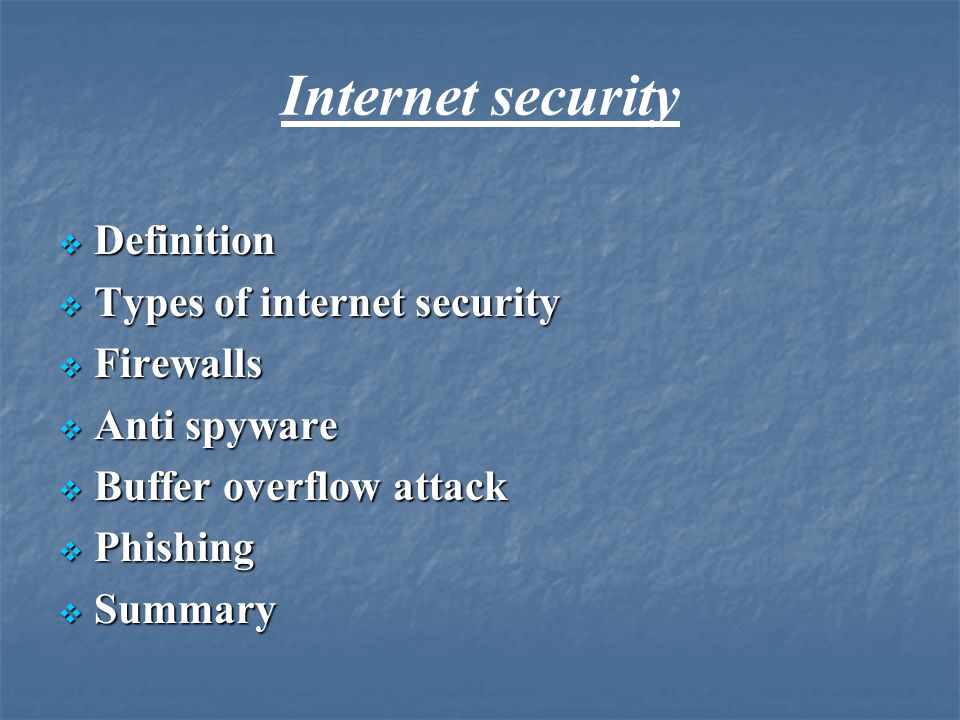What is Internet Security And Its Types

The Internet has revolutionized how we live, work, and communicate in today’s digital age. However, with this increased connectivity comes the risk of cyber threats and attacks. Internet security is the fortress guarding against these malicious activities, aiming to protect individuals, businesses, and organizations from unauthorized access, data breaches, and cyber threats. Understanding the essence of internet security and its diverse types is crucial in navigating the complex landscape of online safety and safeguarding sensitive information. Consult with Managed IT Services Vermont experts to improve internet security in your business.
In this article, we will explore what is internet security and business internet security types.
What is Internet Security?
Internet security refers to the measures and practices taken to protect computer systems and data from unauthorized Internet access, use, disclosure, disruption, modification, or destruction. It involves implementing various technologies, protocols, and policies to safeguard sensitive information and prevent cyber threats like viruses, malware, hacking attempts, identity theft, and phishing scams. Internet security is crucial for individuals and organizations, as it helps ensure the confidentiality, integrity, and availability of data transmitted over the Internet. Standard internet security methods include using strong passwords, encrypting data, regularly updating software and antivirus programs, and practicing safe browsing habits. By protecting their online presence, users can reduce the risk of falling victim to cyberattacks and safeguard their personal information.
8 Types of Internet Security For Business
- Network Security
Network security is critical to internet security, as it focuses on protecting the network infrastructure and preventing unauthorized access to sensitive information. Several measures can be implemented to enhance network security, including firewalls, intrusion detection systems, and virtual private networks (VPNs). Firewalls monitor and control incoming and outgoing traffic to protect against external threats and act as a barrier between the internal network and the internet.
Intrusion detection systems monitor network activity for any signs of malicious behavior or unauthorized access attempts. VPNs create a secure connection between remote users and the network, encrypting data transmission to ensure confidentiality. By implementing these network security measures, organizations can significantly reduce the risk of cyber-attacks and safeguard their valuable data.
- Endpoint Security
Endpoint security is a crucial component of internet security. It protects endpoints like laptops, desktops, smartphones, and tablets from potential threats and unauthorized access. With the increasing number of devices connected to networks, endpoint security has become even more critical in safeguarding sensitive data and preventing cyber attacks.
Endpoint security solutions typically include antivirus software, firewalls, intrusion detection systems, and encryption tools. These measures help to detect and prevent malware infections, unauthorized access attempts, and other security breaches that could compromise the confidentiality and integrity of data stored on or accessed through endpoints.
- Application Security
Application security is a crucial aspect of internet security. It focuses on protecting applications from threats and vulnerabilities that could compromise their integrity, confidentiality, and availability. Applications are often the entry point for hackers and malicious actors to gain unauthorized access to sensitive data or carry out cyber attacks.
Organizations must implement secure coding practices, regular vulnerability assessments, and penetration testing to ensure application security. Additionally, robust authentication mechanisms, access controls, and encryption techniques should be employed to safeguard the application’s data and functionality. By prioritizing application security, businesses can mitigate the risk of breaches and protect both their assets and the sensitive information of their users or customers.
- Cloud Security
Cloud security is internet security that protects data and applications stored in the cloud. As more businesses and individuals rely on cloud-based services for storage and computing power, the need for robust cloud security measures has become increasingly important.
Cloud security involves various techniques and technologies to safeguard data from unauthorized access, breaches, and other cyber threats. These measures may include encryption, access controls, threat detection, and incident response protocols. Businesses must prioritize cloud security to ensure their sensitive information’s confidentiality, integrity, and availability in the digital landscape.
- Data Security
Data security is a critical component of Internet security. It protects sensitive information, such as personal or financial data, from unauthorized access, use, disclosure, or destruction. Several methods and technologies can be utilized to ensure data security.
Encryption is used to scramble data so unauthorized individuals cannot read it. Firewalls can be implemented to monitor and control incoming and outgoing network traffic. Intrusion detection systems can detect and prevent unauthorized access to a network. Regular data backups and secure storage practices also protect against data loss or theft.
- Identity and Access Management (IAM)
Imparting user identity and regulating access to online resources is a vital component of cybersecurity, known as Identity and Access Management (IAM). It involves managing and controlling individuals’ identities and access privileges within an organization or system. IAM ensures that only authorized individuals can access sensitive information, resources, and systems while preventing unauthorized access and potential security breaches.
This is achieved through various security measures, such as robust authentication protocols, user provisioning and de-provisioning processes, and role-based access control. By effectively managing identities and access rights, organizations can significantly enhance their security posture and protect their valuable assets from potential threats.
- Two-Factor Authentication (2FA) and Multi-Factor Authentication (MFA)
Two-factor authentication (2FA) and Multi-Factor Authentication (MFA) are two crucial types of internet security measures that provide additional protection for online accounts. 2FA requires users to provide two different forms of identification, typically a password and a unique code sent to their mobile device, before accessing their account.
This helps to ensure that even if a password is compromised, the account remains secure. MFA takes this further by requiring users to provide multiple forms of identification, such as a fingerprint scan or facial recognition, a password, and a unique code. This additional level of security makes it even more difficult for unauthorized individuals to access sensitive information.
- Incident Response and Disaster Recovery
Incident response and disaster recovery are two critical components of internet security. Incident response refers to the process of identifying, investigating, and mitigating security incidents that occur within a network or system. This includes analyzing network logs, containing the incident, and restoring normal operations.
On the other hand, disaster recovery focuses on restoring systems and data after a major incident or disaster, such as a cyberattack or natural disaster. This involves creating backups of critical data, developing contingency plans, and testing the ability to recover systems and data in an emergency.
Conclusion
Internet security is an essential aspect of the digital world, encompassing a range of measures and strategies meticulously designed to safeguard data, systems, and users from cyber threats and unauthorized access. The diverse landscape of Internet security comprises various types, such as network, application, endpoint, and data security. Each type serves a distinct purpose in fortifying against different vulnerabilities and malicious attacks. For further information, contact the IT Support Vermont team.



